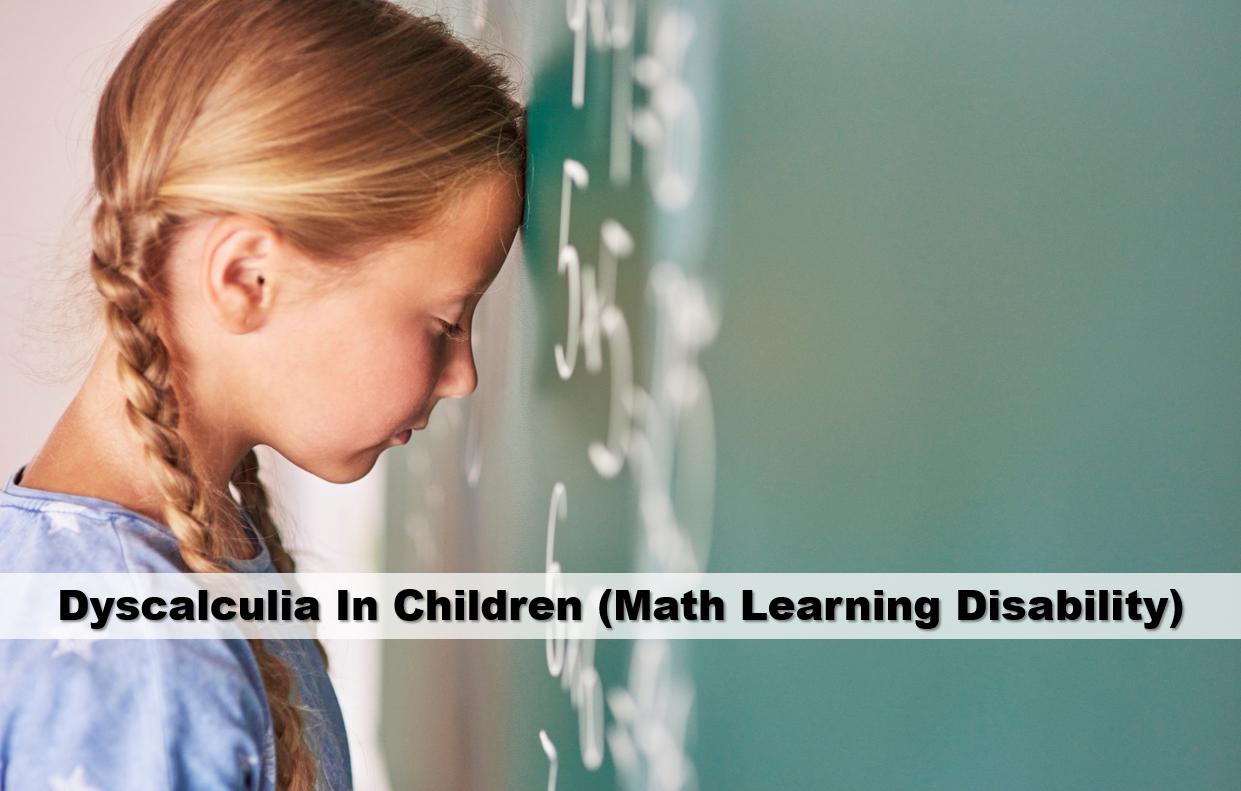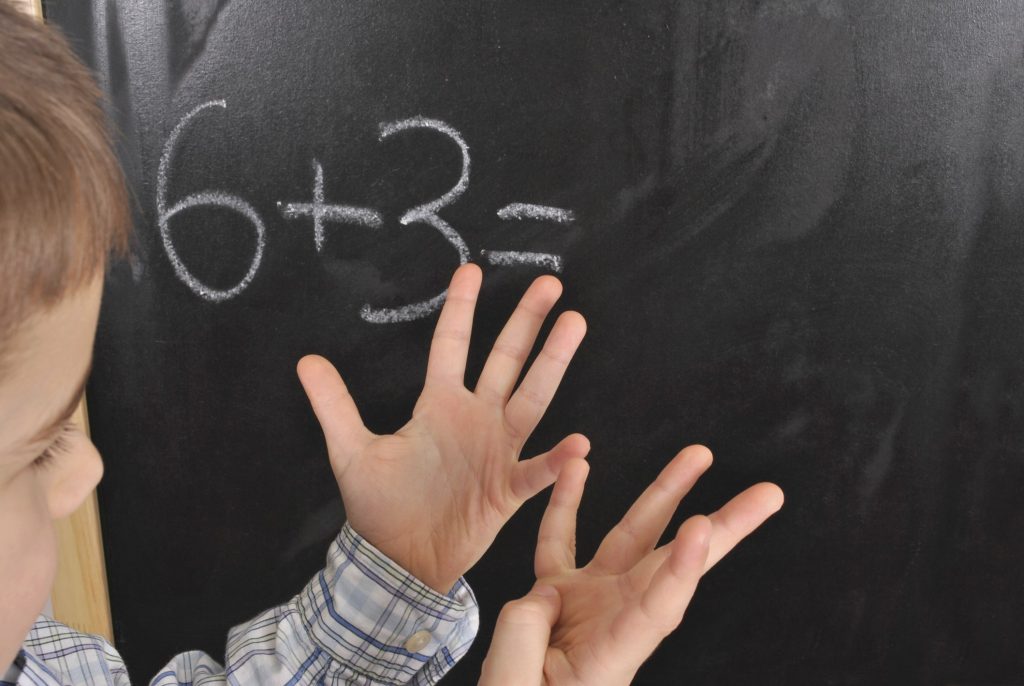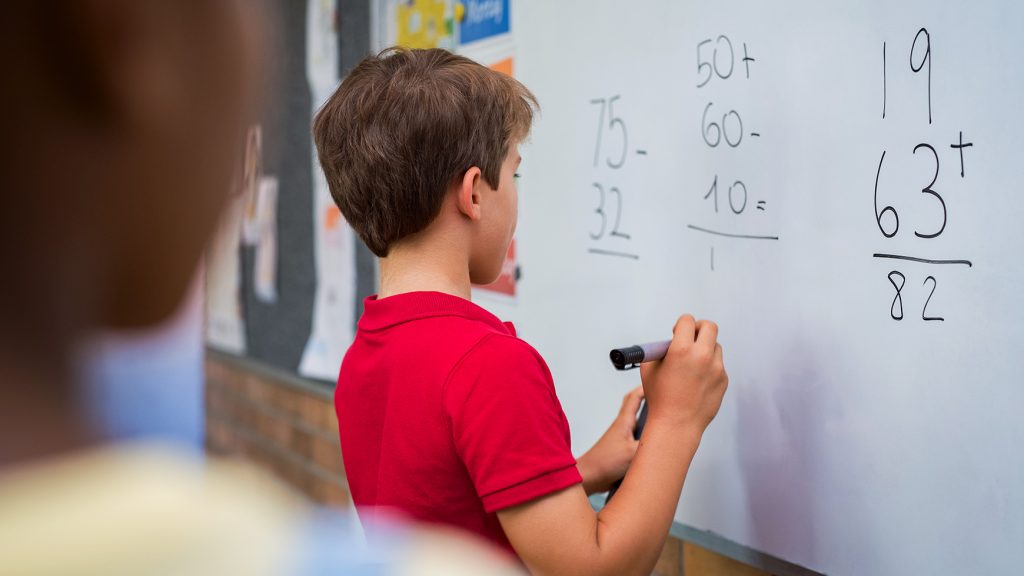Dyscalculia In Children (Math Learning Disability)

Children with a mathematics learning disability (dyscalculia) are among the groups of children in need of special educational support. It is significant to take a series of supportive measures and pay special attention to them in schools where such children attend. However, you should also have some basic knowledge at home to see if your child has such a problem. Therefore, in this article, we give information that may be useful for understanding whether a child has problems in learning mathematics and solving problems.
What Is Dyscalculia?
This particular learning disorder, called dyscalculia, is seen in many children and points to learning difficulties in terms of mathematical skills. It should be underlined that having such a mathematical skill is essential for the child to perform well in academic performance. Mathematics is a feature that can be gained gradually. For this reason, the following mathematical qualifications are gradually acquired during the years in school:
- Numbers
- Series
- Calculation
- Problem-solving
- Understanding logical exercises

Besides, it should be noted that there are various cognitive processes within the concept of mathematics learning. In this context, the intellectual acquisitions that must be developed to obtain mathematics competence can be listed as follows:
- Numerical information
- Counting and number information
- Logic problems
- Knowledge of digital systems
- Arithmetic problems
- Solving math problems
In this context, it is suggested that five basic principles need to be learned to improve the knowledge of numbers and counting.
- First of all, it is the one-to-one relationships that have to be established between the counting words and objects.
- Second, it is to learn to count the numbers regularly.
- The third principle is the concept of quantity (cardinality). It means that when counting numbers, the last digit is equal to the sum of the counted set.
- Fourth, the concept of separation or subtraction. Learning this concept helps to count the desired number.
- The fifth and final principle is irregular numbers. It means the ability to count numbers in any order, provided that the result or the number to be reached remains the same.

Dyscalculia Symptoms
The problem of difficulty in acquiring mathematical skills is a special learning disability that causes difficulties in solving numbers and numerical questions. This disorder is not caused by a low level of intellectual or mental capacity. Similarly, it is not related to a lack of teaching or poor-quality teaching techniques. If a child often makes mistakes in numerical calculations, it can be predicted that he or she has problems with mathematical learning abilities. In general, the following symptoms can be observed in children with dyscalculia:
- Counting with fingers often even when performing simple calculations
- Having difficulties in understanding what the numbers mean
- Having various problems in understanding and interpreting quantitative data
- Take difficulty in reading and writing numbers
- Having trouble memorizing multiplication tables
At this point, we should emphasize that while following the warning signs listed above, we should keep in mind both issues:
- Chronological age (age group of the child)
- Development level
When you find that there is a problem in learning mathematics, it is significant to contact the school where the child is studying. An intensive evaluation program by the guidance department should be used to diagnose dyscalculia. One of the psychometric tests used by professionals to understand impairment in mathematical learning ability is the test called TEDI-MATH, which assesses basic mathematical abilities.

Help Your Child with Dyscalculia
You can help children with mathematical learning disabilities at home. However, while doing this, you should always choose the fun options that do not bother the child and do not leave him under stress or pressure. In this context, there are a few recommendations for methods you can use to support children’s mathematical competence:
- Develop various hobbies including numbers.
- Teach mathematical calculations through visual and modeling.
- Play various games that contain some arithmetic solutions.
- Practice practical calculation. Note that such calculations will be useful in daily life.
. If the methods and rules listed above are followed, children with mathematical learning difficulties can develop their math skills with the help of special materials. It is significant to provide special education-oriented support to these children in gaining mathematics competence.
Causes Of Dizziness In Children
Coronavirus Causes and Symptoms





